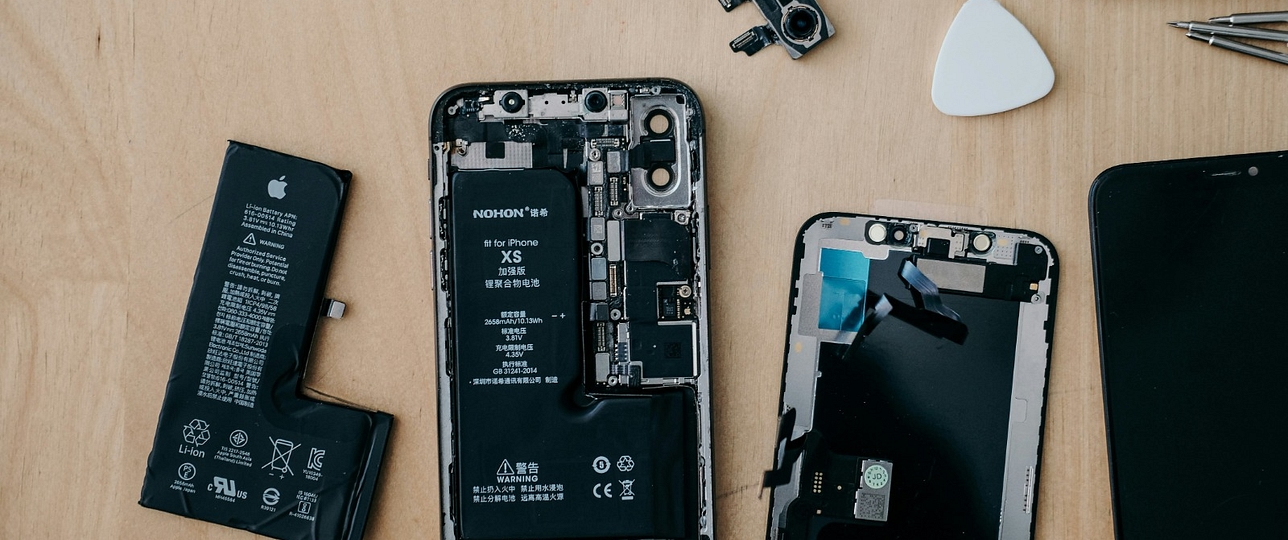Buying a new phone can be expensive, especially if you're living abroad, sending money home, or just trying to keep your monthly costs low. That’s why more and more people are choosing refurbished phones. They look like new, cost less, and often come with a warranty. But are they really a good deal? And what should you watch out for? In this article, we’ll break down all pros and cons of buying a refurbished phone.
What Is A Refurbished Phone?
A refurbished phone is a used phone that has been professionally repaired, cleaned, and tested before being sold again. It’s not the same as buying a second-hand phone from a private seller. Refurbished devices usually come from people who’ve traded in their old phone or returned it during a warranty period.
Before resale, the phone is checked for hardware issues, wiped clean, and restored to factory settings. Some sellers even replace the battery or outer shell, so it looks and feels brand new. You can buy refurbished phones directly from brands like Apple and Samsung, or through certified resellers like Back Market and Gazelle.
The Advantages Of Refurbished Phones
Let’s start with the good news. There are several clear benefits to buying a refurbished phone, especially if you’re trying to be smart with your money.
First, the price. Refurbished phones can be significantly cheaper than new ones. You might get last year’s iPhone or Samsung Galaxy for half the original price. That makes it easier to get a high-quality device even if you're on a tighter budget.
Second, it’s better for the environment. Refurbished phones reduce electronic waste and help extend the life of devices that still work perfectly well. If you care about sustainability, this is a more eco-conscious choice than buying new.
Third, there’s often a warranty. Unlike buying a used phone on a marketplace or through a friend, refurbished phones usually come with some form of guarantee, typically 12 months. That means you’re protected if something goes wrong.
And finally, it gives you freedom. If you’re living abroad or traveling long-term, you might not want to spend $1000 on a phone that could get lost, stolen or broken. A good refurbished phone does the job.

The Downsides Of Refurbished Phones
That said, refurbished phones aren’t perfect. There are a few things you need to know before making your decision.
First of all: performance. While many refurbished phones work perfectly, some may have older processors, slower cameras, or slightly reduced battery life. If you're someone who uses your phone for heavy multitasking, gaming or content creation, this could be a dealbreaker.
Second: cosmetic condition. Refurbished phones are usually rated by grade, like A, B or C, to indicate how “new” they look. Grade A means near-perfect. Grade B may have visible scratches or signs of use. Be sure to check the grading system before you buy, and make sure you’re comfortable with it.
Third: compatibility. If you're living abroad, it's smart to check that your refurbished phone supports the mobile networks in your destination country. Most modern smartphones are compatible with global networks, and many support eSIM as well, making it even easier to stay connected. That means you can top up mobile data through platforms like Mitti and get online right away, no matter where you are.
Fourth: battery quality. Some refurbished phones come with a new battery, others don’t. A weak battery can seriously affect your experience — especially if you’re on the move a lot or rely on hotspot data. Make sure to read the fine print and, if needed, budget for a battery replacement.
How To Choose A Good Refurbished Phone
If you decide to go the refurbished route, a little research goes a long way. Start by choosing a reputable seller. Avoid random online ads or marketplaces where devices aren’t tested or guaranteed. Look for sellers that are certified, transparent about their grading system, and offer a clear return policy. Popular platforms like Back Market or Gazelle are good places to start. If you prefer buying directly from a brand, Apple and Samsung both have their own refurbished stores.
Decide what really matters to you. Is it camera quality? Battery life? Size? If you're just using your phone for messaging, calls, and navigation, you don’t need the latest model. But if you shoot a lot of videos or manage your work from your phone, investing in a slightly newer model might be worth it.
Who Should (And Shouldn’t) Buy Refurbished
Refurbished phones make a lot of sense for certain people, and not so much for others. They’re a great option if you’re looking to save money, reduce waste, or just don’t need the latest model. They’re also ideal for travellers, students, and people living abroad temporarily. But if you rely on your phone for high-performance tasks, or you want a device that lasts 4 to 5 years, it might be better to invest in a newer model. In that case, the upfront cost pays off in longevity and features.

What About Second-Hand Phones?
You might be wondering: isn’t this the same as buying second-hand? Not exactly. A second-hand phone is usually sold by an individual and doesn’t go through any checks or repairs. There’s also no guarantee that the battery is in good shape or that the phone hasn’t been damaged. Refurbished phones are inspected, tested and often restored to like-new condition. You’re also covered by consumer protection laws if you buy from a certified seller. That peace of mind is worth the slightly higher price.
How To Get Started
Before you buy, make a list of your non-negotiables. Do you need a good camera? Fast processing? Dual SIM? Compare a few models and see which fits your needs and your budget. Once you’ve found your phone, double-check its compatibility with the mobile networks in your country, especially if you’re using local SIMs or topping up via Mitti. A great phone still needs reliable data to do its job.
Conclusion
A refurbished phone isn’t just a way to save money. It’s a smart, sustainable and flexible choice, especially if you live abroad, travel often, or simply want to reduce waste. Like any big decision, it comes down to knowing what matters most to you. If you choose the right model from a trusted source and understand the trade-offs, a refurbished phone can be a powerful tool at half the price.


